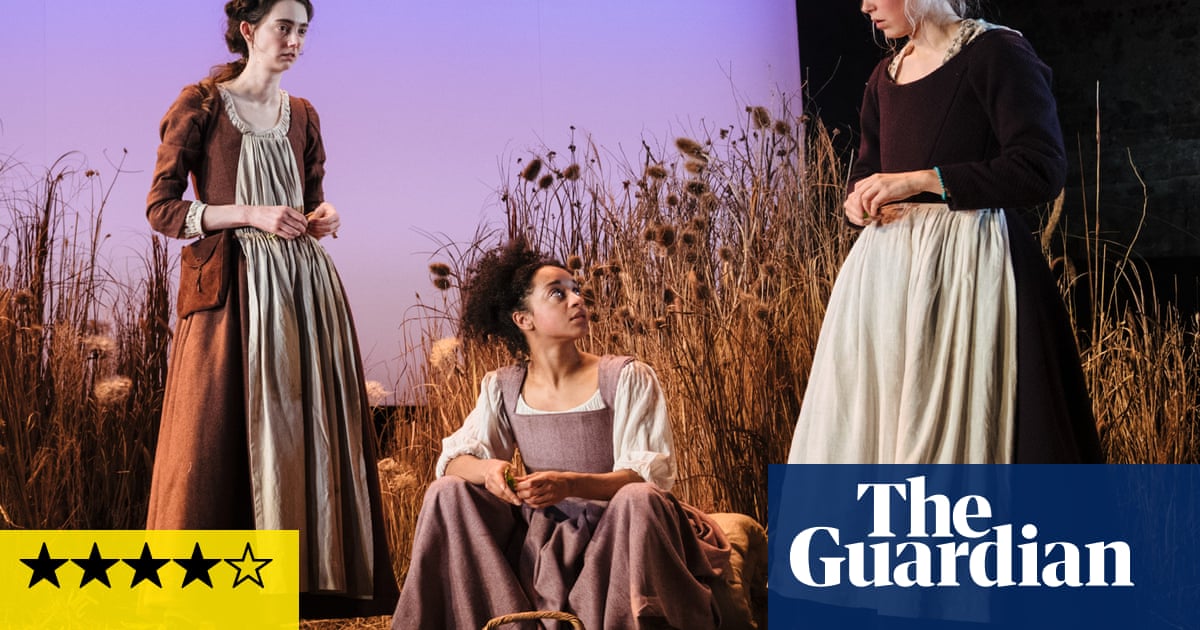Ava Pickett’s debut play, a product of the Almeida’s new writing scheme, comes laden with accolades including theSusan Smith Blackburn prize. All the fuss is justified. Set against the impending execution of Anne Boleyn, 1536 is an effortlessly funny, bold and ballsy play, which asks the question: just how much have things really changed for women today?
While the historical backdrop is dramatic, this is largely a play of small and arresting moments. Max Jones’s stark set – full of long lush grass and empty horizons – never changes. We’re in a forgotten field in Essex, where three female friends meet, talk, prod and tease each other. The long grass blows and the sky, thanks to Jack Knowles’ emotive lighting, seems to throb with the promise of other, grander lives playing out somewhere far away.
It might have felt a bit static were it not for Pickett’s brilliant eye for detail and three captivating central performances. There’s midwife Mariella who – rather refreshingly – hates her job and whom Tanya Reynolds imbues with a bristling, fragile competence. Siena Kelly is lovable and loathable as “good girl” Anna, who longs for marriage and brims with anxiety, vulnerability and – as the plot darkens – something steely and ugly too.
At the heart of things is Liv Hill’s thunderbolt of a character, Jane. Practically half the scenes begin with her thrust up against a tree, as she dangles her sexuality in front of men like a horribly dangerous toy. She’s selfish. Brave. Naive. Knowing. As news of Boleyn’s awful fate reaches these three women, Hill’s Jane seems to physically bolt and buck against the world – a wild horse frantic at being kept in captivity for far too long.
Directed with wit and vigour byLyndsey Turner, 1536 is both an easy and a deeply unsettling watch. The contemporary parallels sometimes feel slightly overplayed and, dare I say it, I could have seen more of the men. When they do appear, the scenes glimmer with menace and we are plunged into a world where even the slightest gesture – the refusal to eat a sweet, say – feels fraught with an all-too recognisable danger.
At theAlmeida, London, until 7 June
